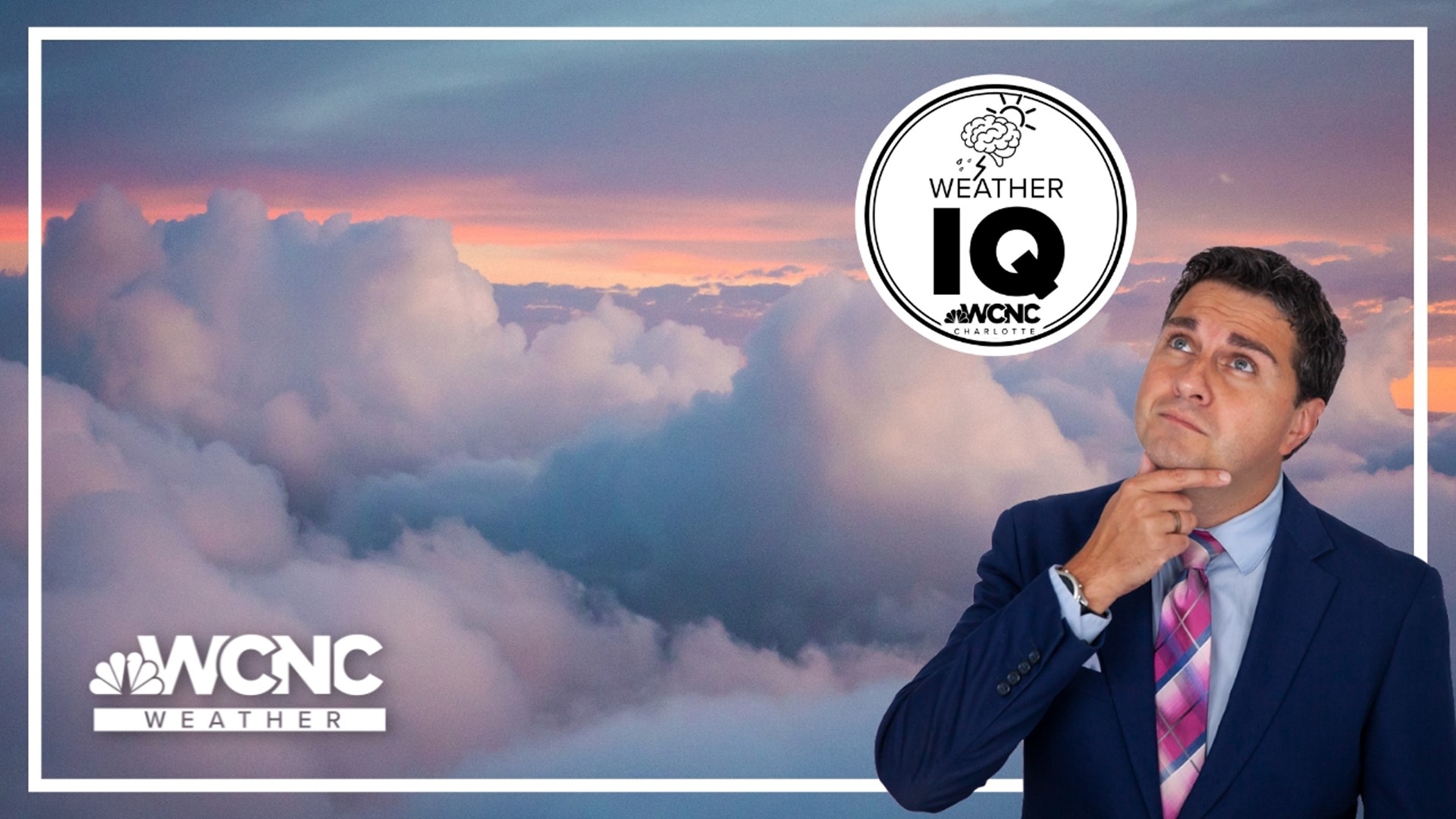CHARLOTTE, N.C. — There are over 100 types and species of clouds that occur around the world. Some clouds are rarer than others. Here are three rare clouds you can spot in the Carolina sky.
Asperitas clouds
This is a fairly new cloud, at least by definition. First documented around 2009 as "Undulatus Asperitus." The name loosely means "rough waves."
The name was officially shortened to Asperitas and added to the International Cloud Atlas in 2017
An asperitas cloud looks like a choppy, rough ocean moving in the sky. The clouds contain an underside rolling, which gives it the comparison to a wave. These clouds form in an environment with high moisture and high wind shear.
A gravity wave moves up and down to form this cloud's unique dynamics. However, the true dynamics of the clouds are largely still unknown.
These clouds may look threatening but pose no threat -- even though they are sometimes seen following thunderstorms.
Jason Murray sent a photo from Rock Hill in June of 2023.
Fallstreak hole clouds
This is also called a "hole punch cloud."
Fallstreak hole clouds have a circular or ellipse shape. They're formed by cirrocumulus or alto cumulous clouds in the higher levels of the atmosphere.
RAISE YOUR WEATHER IQ: 10 types of clouds and what they mean
These clouds are made up of supercooled water droplets, which form when temperatures drop as cloud as -40 degrees. When the water droplets freeze, they freeze onto molecules in the atmosphere.
When an airplane flies through the cloud, planes bring ice crystals. These supercooled droplets freeze and start to fall. As this is happening, water droplets around the ice crystals evaporate.
This leaves a unique cloud that looks like someone has punched a hole in the middle.
For the latest weather alerts, download the WCNC Charlotte mobile app and enable push notifications.
Kelvin-Helmholtz waves
These clouds look like short-lived, cartoon-like waves breaking across the sky. They form over 15,000 feet above our heads.
At most, the clouds last only a few minutes When these occur, the atmosphere is usually stable but the wind shear above is high. In this scenario, wind speeds are changing at different heights in the atmosphere. The warmer, upper winds are moving faster. These differing densities condense clouds into these brief shapes.
These clouds are also an indication to pilots that flying through this area could be turbulent.
All three of these clouds can and have formed here in the Carolinas. They don't last long. So make sure to take a picture and send it to us using the Near Me feature on the WCNC Charlotte app or by texting 704-329-3600.
WCNC Charlotte’s Weather IQ YouTube channel gives detailed explainers from the WCNC Charlotte meteorologists to help you learn and understand weather, climate and science. Watch previous stories where you can raise your Weather IQ in the YouTube playlist below and subscribe to get updated when new videos are uploaded.

